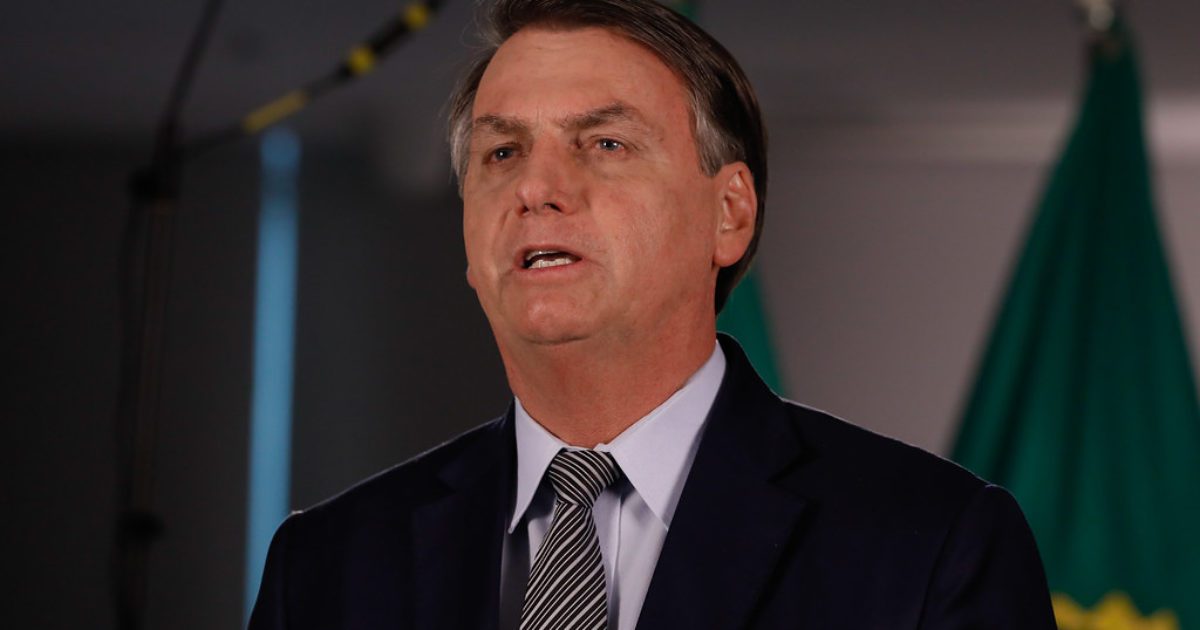The ongoing Russia-Ukraine conflict has the world frightened about global food shortages.
According to World Population Review, Russia and Ukraine account for nearly 30% of the global wheat trade.
As a result, Russia’s 2022 military invasion of the Ukraine sent global wheat prices soaring, with Ukraine’s production ability compromised and many countries restricting or shutting down trade relations with Russia. Russia is also a major supplier of fertilizer, which is vital to maximizing crop yields, which adds another layer of complication for farmers.
World Population Review adds that wheat is the second-most-produced cereal grain behind maize, and the global trade of wheat is greater than all other crops combined.
Given the impact on wheat and fertilizer, it’s predicted the global food supply will be catastrophically reduced by the conflict.
However, Brazil is another major food producer that’s reportedly stepping up to the plate amidst the dire predictions.
How Brazil Is Saving The World From A Catastrophic Food Crisis https://t.co/AVY1J1T29l
— zerohedge (@zerohedge) June 7, 2022
From Augusto Zimmermann of The Epoch Times via Zero Hedge:
Brazil is the fourth-largest producer of food in the world.The country is entirely self-sufficient in basic foodstuffs, and it ranks as the world’s number one producer of banana, cacao, cassava, coffee, corn, maize, rice, soybean, and sugar. Although the bulk of these products are consumed domestically, a considerable part is also exported, including oranges, palm oils, garlic, peanuts, tea, etc.
But Brazil needs a steady supply of fertilizers to power its mighty agricultural industry. The country’s largest international supplier of fertilizers is Russia, which accounts for 44 percent of the total Brazil consumes each year.
Since the war in Ukraine began, Brazil’s President Jair Bolsonaro said his country would remain neutral. He met with Russia’s President Vladimir Putin in Moscow on Feb. 16, and on the occasion, President Bolsonaro stated: “We are eager to cooperate [with Russia] in various fields. Defence, oil and gas, agriculture. Brazil stands in solidarity with Russia.”
As one may expect, this visit to Russia was heavily criticized by the U.S. government because it took place in the midst of Western tensions with Russia over Ukraine. However, Bolsonaro did not back down.
The Amazon is a huge bank of endless natural resources for Brazilians. It has the most significant percentage of sweet water, valuable minerals, and petroleum globally. It is no wonder the global elites are appealing to environmental issues in an attempt to undermine Brazil’s sovereignty over the region. In reality, environmentally protected areas in Brazil amount to an impressive 25 percent of its entire territory—50 percent in the Amazon alone. However, we are constantly witnessing a misinformation campaign about the deforestation of the Amazon.
On the other hand, it is also true that Brazil still needs to import 97 percent of the roughly 10 million tonnes of potassium it uses for crop production each year, making it the world’s largest importer. So, the fundamental question is: Where could Brazil find more fertilizers from?
The potassium reserves in Brazil are mainly on its Indigenous lands in the Amazon region. According to Márcio Remédio, director of the Geological Survey of Brazil, a state-owned company under the Ministry of Mines and Energy, “These reserves are world-class. They have the potential, if not more, than those in the Ural Mountains produced by Russia and Belarus, and also of Saskatchewan in Canada.”
The report adds that only three percent of Brazilian Indigenous lands are deforested.
Federal law in Brazil authorizes the exploration of mineral riches in the Indigenous lands, but part of the profit must be transferred to the relevant Indigenous community occupying the region.
The Indigenous community cannot be removed from the land except in extraordinary circumstances, but they have the right to return.
“By making an agreement with Russia, Brazil has prevented potassium mining that could harm the Amazon and infringe on Indigenous rights and potentially saved the world from a catastrophic food crisis,” the report stated.
The Russia-Ukraine conflict and the West’s economic sanctions against Russia have placed the global food supply in jeopardy.
If Brazil were to scale back its food production, it would contribute to the already dire circumstances caused by the Russia-Ukraine conflict.
“If Brazil were to scale back next year because of a lack of fertilizer, that would certainly be bad news for a global food crisis,” says Joseph Schmidhuber, an economist who has studied the conflict’s impact on food for the United Nations’ Food and Agriculture Organisation.
And Brazil has proposed a diplomatic solution to avoid a global fertilizer shortage.
From Nasdaq:
Brazil’s Agriculture Minister Tereza Cristina Dias has secured support from five South American countries for a proposal excluding fertilizer products from any sanctions imposed on Russia after its invasion of Ukraine, her aides told Reuters on Thursday.
The Brazilian proposal, to be submitted to the United Nations’ Food and Agriculture Organization, is backed by the agriculture ministers of the Southern Agricultural Council (CAS), which includes Argentina, Bolivia, Brazil, Chile, Paraguay and Uruguay, her aides said.
Brazil, an agricultural powerhouse, is the world’s top importer of fertilizers and argues that crop nutrients, like food, should not be targeted by sanctions.
Dias, who is expected to talk to FAO Director-General Qu Dongyu on Wednesday, has called on countries to find a global solution for the issue, noting a shortage of fertilizers will cause food inflation and potentially undermine food security.
She hopes to get enough support from FAO to persuade other U.N. members to back the proposal.
“Global food inflation is something that should worry all countries,” Dias said in a recent interview.
Between its agreement with Russia and urgency to seek diplomatic solutions, Brazil is taking a leading role in attempting to prevent a global catastrophe.



Join the conversation!
Please share your thoughts about this article below. We value your opinions, and would love to see you add to the discussion!